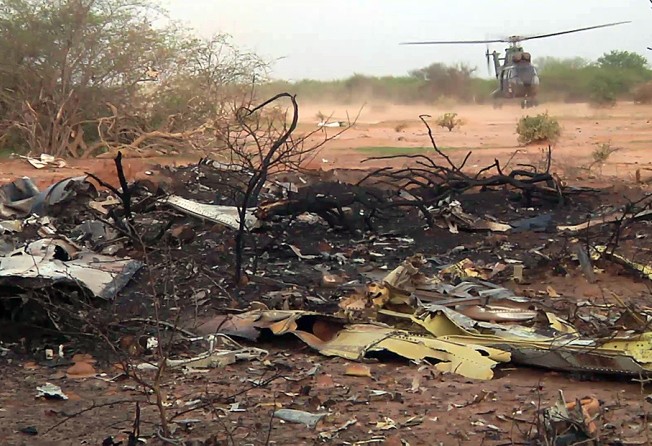Black week for aviation a reminder of the 'magic of flight and fragility of life'

Nearly 300 passengers are killed when their plane is shot out of the sky over eastern Ukraine. Airlines suspend flights to Israel's largest airport after rocket attacks. An airliner crashes during a storm in Taiwan, and yet another crashes in West Africa. Aviation has suffered one of its worst weeks in memory.
Industry analysts and safety experts say they can find no common themes. Nor do they think the events indicate that flying is suddenly becoming less safe.
Fewer than one in two million flights last year ended in an accident in which the plane was damaged beyond repair, according to the International Air Transport Association. That includes accidents involving cargo and charter airlines as well as scheduled passenger flights.
"One of the things that makes me feel better when we look at these events is that if they all were the same type of event or same root cause then you would say there's a systemic problem here, but each event is unique in its own way," said Jon Beatty, president and CEO of the Flight Safety Foundation, an airline-industry-supported non-profit organisation in the United States that promotes global aviation safety.
But Beatty said he also found the disasters "a cold reminder" that airline accidents were likely to increase because the industry was still growing, especially in developing countries. The more flights there were, the more potential for accidents, he said.
The misfortunes began on July 18 when Malaysia Airlines flight 17 was shot down over eastern Ukraine with 298 people on board. It's still not clear who fired the missile that destroyed the plane, but Ukrainian officials have blamed pro-Russian rebels.
The mysterious disappearance in March of Malaysia Airlines flight 370 with 239 people on board, combined with the destruction of MH17, added up to more than twice the total global airline fatalities in all of last year, which was the industry's safest year on record. Ascend, a global aviation industry consulting firm based in London, counted 163 deaths in 2013 involving airliners with 14 seats or more.
On Wednesday, a TransAsia Airways plane crashed in Taiwan in stormy weather trailing a typhoon, killing 48 passengers, injuring 10 others and crew and injuring five people on the ground. On Thursday, an Air Algerie flight with 118 aboard crashed en route from Burkina Faso to Algeria's capital.
Poor weather was the most likely cause of the crash of the Air Algerie flight in Mali that killed all 118 people on board, French officials said yesterday. Ten people from the same family with roots in France's east died in the crash.
Together, the disasters have the potential to push airline deaths this year above 700 - the most since 2010. And 2014 is still barely halfway through.
Aviation industry analyst Robert Mann said the crashes would not deter travellers. "They're all tragic, but the global air travel consumer has a very short memory, and it's highly localised to their home markets where they fly," he said.
The shooting down of MH17 has raised questions about whether airlines are adjusting routes quickly enough in response to unrest. But aviation safety consultant John Cox, an accident investigator, said he saw no connection between the disasters.
"I don't know how you could respond to anything when there is not a commonality of events," he said.
Aviation was "fundamentally safe and getting safer, but it can always fall prey to the mistakes or ill will of man", said former Federal Aviation Administration chief counsel Kenneth Quinn.